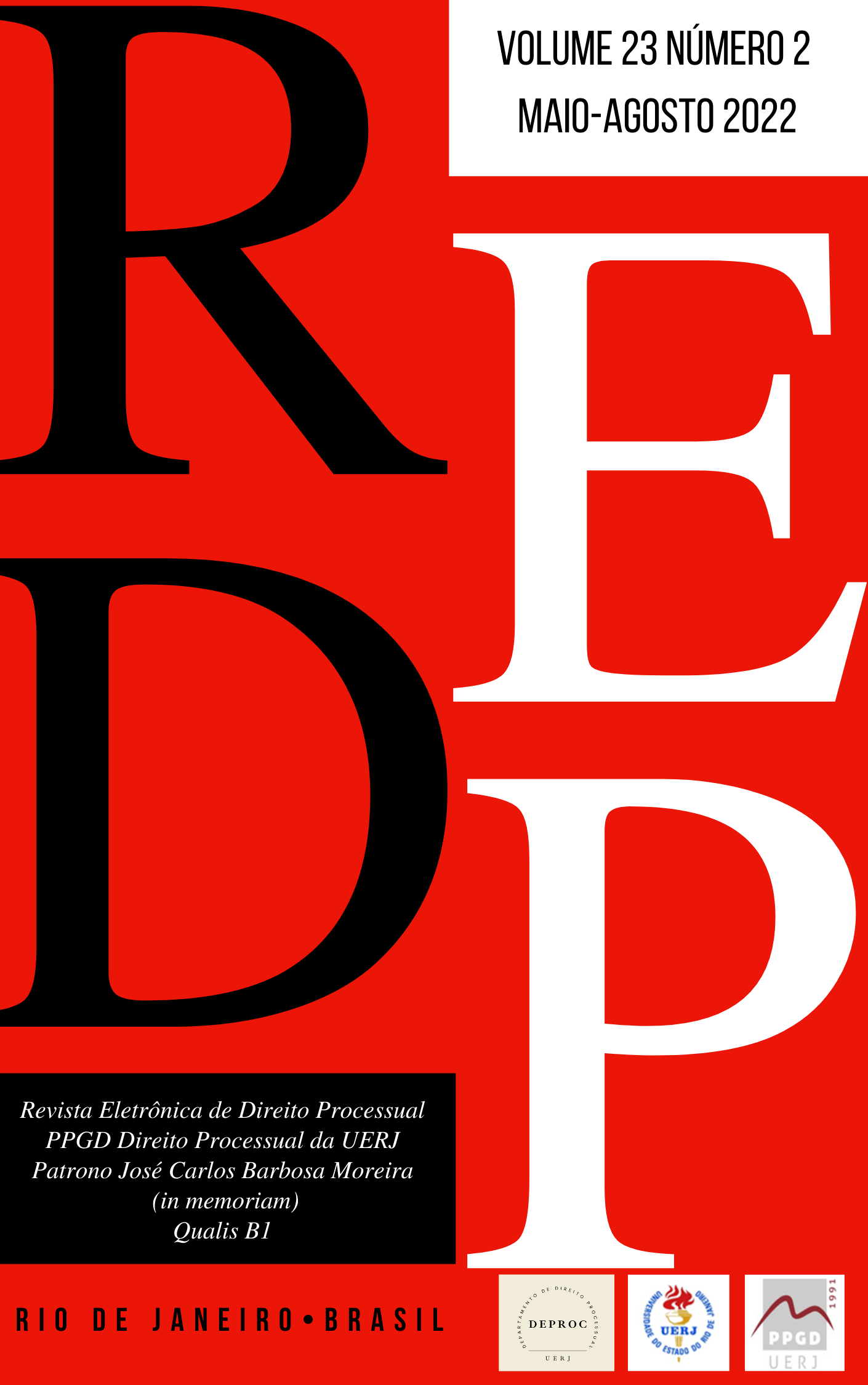TRAPPED BY THEIR PAST: ABOUT THE TENSIONS THAT AFFECT THE EVIDENCE REGIME IN CONSUMER PROCEEDINGS
DOI:
https://doi.org/10.12957/redp.2022.67844Keywords:
evidence law, consumer law, class actions, formative principles of procedure, the role of the judgeAbstract
Evidence remains a common and decisive problem in consumer law litigation, either in individual proceedings or class actions. This situation remains although new rules and evidentiary mechanisms have been put into place that acknowledge the differences between litigants, given that their effectiveness have been limited. The above situation is due to a normative, theoretical, and practical context that limits the effects of such reforms. This problem has not been properly addressed by Chilean legal scholarship. The objective of this paper is to present such context, showing the different levels in which operates and the different problems that generate. Later this piece will suggest new conceptual grounds and debate proposals that could improve the construction of an evidence regime that will actually take into consideration the particularities of consumer conflicts. The methodology used was mostly analytical concerning the study of the rules, their modification and also jurisprudential analysis. In conclusion, some proposals arepresented to remove normative, theoretical, and practical obstacles to the development of a judicial activity in the field of evidence that is more functional to the objectives of consumer proceedings. A first alternative would be the elaboration of a consumer procedural code, which provides theoretical and normative autonomy to litigation in this area. Another proposal would be to take the expertise in this matter a step further, creating courts dedicated exclusively to the judgment of consumer disputes. However, there is a third alternative that seems to be more viable and that would be perfectly compatible with the creation of complete and coherent legislation, even if it remains in the hands of the general judges. The third solution consists in introducing the notion of case management as a conceptual vehicle that comes to modify and offer a new paradigm regarding the understanding of the role of judges within consumer litigation, eventually changing the legal culture of justice operators.Downloads
Published
How to Cite
Issue
Section
License
Todos os artigos publicados na Revista Eletrônica de Direito Processual (REDP) (Departamento de Direito Processual, Universidade do Estado do Rio de Janeiro, Brasil) são licenciados por meio de uma Licença Creative Commons - Atribuição 4.0 Internacional (CC BY 4.0).
Os autores retêm os direitos autorais de seu artigo e concordam em licenciar seu trabalho com a licença CC BY 4.0, aceitando assim os termos e condições específicos desta licença disponíveis no seguinte website: https://creativecommons.org/licenses/by/4.0/legalcode.
- Os autores concedem à REDP o direito de primeira publicação, de se identificar como publicadora original do trabalho e concedem à revista uma licença de direitos não exclusivos para utilizar o trabalho das seguintes formas: Reproduzir, vender e distribuir cópias eletrônicas ou impressas do manuscrito como um todo, de partes específicas do manuscrito e de suas traduções para qualquer idioma;
- O uso do artigo por terceiros é livre, contanto que a integridade da publicação seja mantida e seus autores originais, periódico de primeira publicação e detalhes de citação sejam identificados.
Dentro dos termos da licença, os autores podem entrar em acordos contratuais adicionais separados para a distribuição não exclusiva da versão publicada do trabalho na revista.
Copyright and Licensing
All articles published in the Procedural Law Electronic Review (REDP) (Department of Procedural Law, State University of Rio de Janeiro, Brazil) are licensed under a Creative Commons License - Attribution 4.0 International (CC BY 4.0).
- Authors retain copyright to their article and agree to license their work under the CC BY 4.0 license, thereby accepting the specific terms and conditions of this license available at the following website: https://creativecommons.org/licenses/by/4.0/ legal code.
- Authors grant REDP the right of first publication, to identify itself as the original publisher of the work, and grant the journal a non-exclusive license to use the work in the following ways: Reproduce, sell and distribute electronic or printed copies of the manuscript as a whole, of specific parts of the manuscript and its translations into any language;
- Use of the article by third parties is free, as long as the integrity of the publication is maintained and its original authors, first publication journal, and citation details are identified.
Within the terms of the license, authors may enter into separate additional contractual agreements for the non-exclusive distribution of the published version of the work in the journal.





